For this Creative Explorations Project we were told to go to any part of Granville Island and sit for a good 5 minuets and record all the experiences you felt, heard, and saw. We were to present our list back in class and then trade with another person. Using their list we were asked to recreate another list based on what we imagined. This happened once more. Lastly these lists was placed in a hat to be drawn randomly by each person.
In the end I received Alex's list.
We then each created a soundtrack based on what we read in the list.
My Sound File
However I liked the soundtrack produced by Chloe Ezra more and I used that as the beginnings of the creative explorations project.
Chloe's SoundtrackWhen I heard of the soundtrack it immediately reminded of a popular game "Bioshock" which featured a underwater retro city overrun my monsters. The soundtrack reflected not only the time period but also the desolate and dark feeling of the setting. I took inspiration from the game and decided that I will create and light an environment which reflects the soundtrack.
I then gathered some reference images from Bioshock. This was straight out of the Bioshock artbook, and it includes among various goodies, the environmental conceptual art which i need.

Then I quickly modeled and blocked out some concepts of what the environment should look like.
a couple to list:
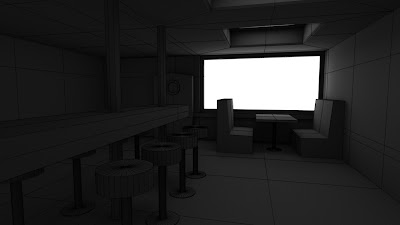
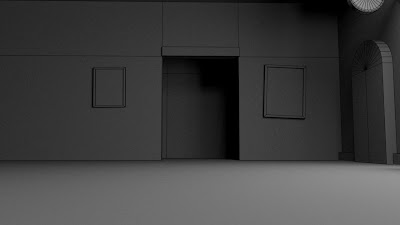
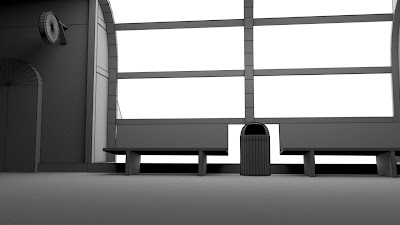
After a while this is what i decided upon:
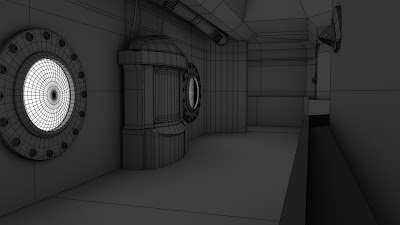
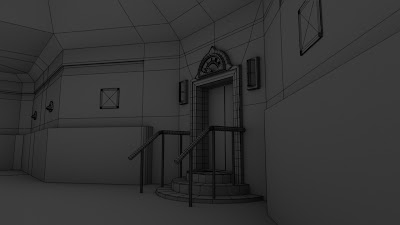
(Maya 2011, Mentalray, Photoshop CS5)
With everything modeled I needed to start texturering. I've contemplated using zbrush for this aspect of the project, but I didn't really like the painting features of zbrush all that much. So I decided to try Mari just to expand my horizon.
There was a lot of things i like about Mari and there were just as many things i didn't like about it as well. The biggest problem i had with working Mari is that the program cannot clear the history, as a result it fills the ram almost instantaneously. When working on 2k+ textures it can be frustrating having to restart the program every-time the ram fills up. otherwise Mari did a wonderful job.
Example of a texture:
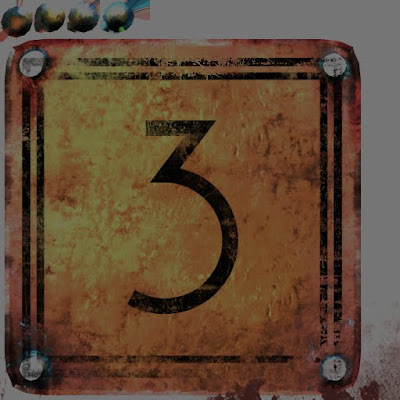
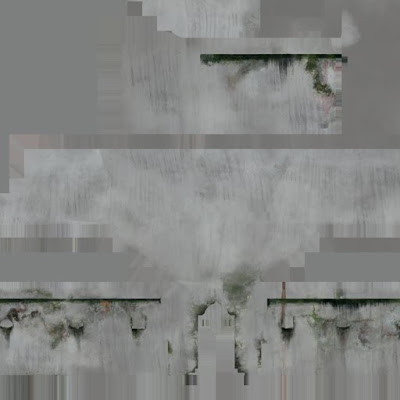
Could have made the wall texture more efficient but ah well.
With that done, it is onto lighting.
Lighting was very difficult to learn. Firstly the better lack of online resources makes it very challenging to figure how some light settings interact with mental ray. Secondly mental ray is trying to integrate as much as it can with the stock Maya lights which results in a very awkward lighting setups. For example if you have the physical light shader attached to a spotlight the normal controls and the shadows tab is disabled, and things like light intensity and shadow softness is controlled through the new shader node. It is very unintuitive. This becomes even more confusing and frustrating when GI and FG is enabled. Of course all this round about method of lighting can be avoid by switching to Vray but sheer mount of options of mental ray still quite appealing.
Some Final Renders:
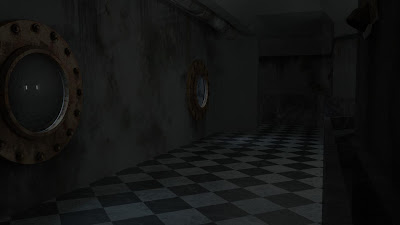
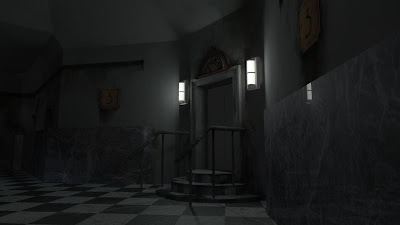
Overall it was an interesting and challenging project. Lighting and mental ray is still unfamiliar territory but i think i have a little better grasp of things.














